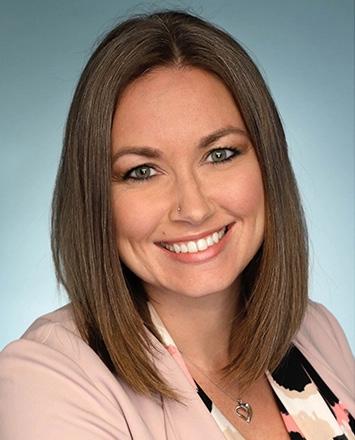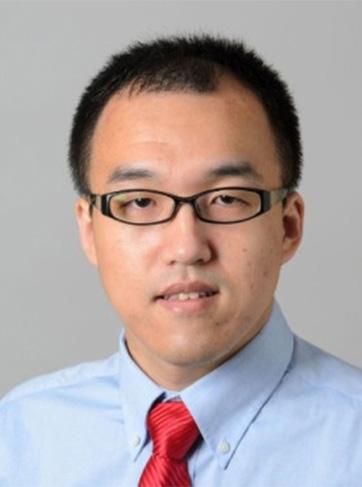
10 minute read
Alumni News
EIRC Alumna Mona Ghassemi is Recipient of 2020 NSF CAREER Award and 2020 AFOSR Young Investigator Award
Institute of Materials Science
Advertisement
IMS Alumna, Dr. Mona Ghassemi Dr. Mona Ghassemi, an IMS Alumna, is a recipient of the prestigious 2020 National Science Foundation (NSF) CAREER Award and the 2020 Air Force Office of Scientific Research (AFOSR) Young Invistigator Research Program (YIP) Award. Dr. Ghassemi was a post-doctoral fellow at the IMS Electrical Insulation Research Center (EIRC) from 2015 to 2017 working in the fields of streamer modeling for a Department of Defense (DOD)-funded subsea oil and gas electrification project as well as arc gas dynamic computation for General Electric with fruitful research outcomes of multiple joint publications with her advisor, Dr. Yang Cao at IEEE Transactions.
Since August 2017, Dr. Ghassemi has been an assistant professor at the Bradley Department of Electrical and Computer Engineering at Virginia Polytechnic Institute and State University. Her research interests include electrical insulation materials and systems, high voltage/field technology, multiphysics modeling, plasma science, electromagnetic transients in power systems, and power system analysis and modeling.
Initial Struggles Led to Lessons for IMS Polymer Program Graduate Dr. Deepthi Varghese
Institute of Materials Science

IMS Alumna, Dr. Deepthi Varghese After completing a Master’s Degree in Biochemistry from St. Josephs Arts & Science College in Bangalore, India, Deepthi Varghese joined the UConn Chemistry graduate program in the fall semester of 2014. After hearing brief research presentations from the chemistry departmental faculty, she became interested in Polymer Science with Prof. Douglas Adamson, an unexpected diversion from her initial plans for a career in biochemistry into a field in which she had no experience.
Although the lack of experience created a steep learning curve, Deepthi embraced this new research direction. While she faced challenges during the first two years, looking back, Deepthi says that she “gained far more knowledge than expected, including polymer science, electro chemistry, and setting up scientific research laboratories.”
Deepthi also struggled with many challenges regarding science including the fact that experiments are more likely to fail than succeed; science takes far more time than initially expected; and there is never enough time to accomplish everything. Lessons like this can be applied to all aspects of life, business, and art, as well as science.
In addition to the science, Deepthi has increased her knowledge of communications, independent learning, and keeping an open her mind to feedback from all sources. She realized that you never know who will have valuable knowledge.
MSE Alumna Jacquelynn Garofano Honored by Society of Women Engineers
Materials Science and Engineering Department

MSE alumna, Dr. Jacquelynn Garofano
Jacquelynn Garofano used to suffer from impostor syndrome.
You wouldn’t know it today – she speaks with the poise and confidence you’d expect from someone with her credentials – but it wasn’t always that way. Early in her career, she felt overloaded, overwhelmed and filled with self-doubt. At one point she found herself on her mother’s couch and in the midst of an anxiety attack. It was both a low point and a lesson in disguise.
“‘No’ is a full sentence. I had to learn that because I was taking on so much,” Garofano said.
In the years since, she has found her voice and her power – she holds a Ph.D., leads a career development program for engineers and is a self-styled “STEMinist” – and she mentors others to help them do the same.
Garofano is among four Raytheon Technologies engineers being honored at the 2020 Society of Women Engineers awards for their contributions to the field. The organization, a nonprofit that advocates for women in engineering and technology, is also honoring 37 women across Raytheon Technologies’ four businesses with a Patent Recognition Award, presented to members who were awarded a patent within the previous 10 years.
Here, the four major award winners share their advice for aspiring leaders.
Garofano was the first in her family to go to college. Her physics professor, Christine Broadbridge, inspired her to pursue a doctorate in materials science and engineering.
“She was leading a materials research lab. I had no idea what that was. I didn’t know what I was walking into,” said Garofano. “I had the access and opportunity and just the gumption, I think, even 20 years ago, to say ‘What do you do? How can I get involved?’”
Since then, Garofano has found joy and success through seeking out connections within Raytheon Technologies as well as outside the company: allies, advisers, peers, people she’s mentored. That has led her to the best job she’s ever had – leading the Margaret Ingels Engineering Development Program at Raytheon Technologies, where she cultivates the next generation of engineers.
“I want to be for someone what Christine was for me,” Garofano said.
Garofano, who was honored with a Spark Award from the Society of Women Engineers (SWE) for contributing to the advancement of women by mentoring, encourages young women to build a community of their own.
“Find people of like mind and like energy, and surround yourself with those people,” she said.
~Dr. Jacquelynn Garofano
UConn Startup Wins NASA Award to Advance Artificial Retina to Help Patients Regain Sight
UConn Today

Nicole Wagner, CEO of UConn TIP company LambdaVision, works in the lab at the Cell and Genome Sciences Building in Farmington. (Peter Morenus/UConn Photo)
LambdaVision, an innovative biotech founded on UConn technology, along with implementation partner, Space Tango, has been selected by NASA for a $5 million award. This new funding will support LambdaVision’s development of the first protein-based artificial retina to restore meaningful vision for patients who are blind or have lost significant sight due to advanced retinitis pigmentosa (RP), with follow-on applications in age-related macular degeneration (AMD), the leading cause of blindness for adults over 55 years old. As part of this award, LambdaVision and Space Tango will explore the benefits of microgravity for producing the startup’s artificial retina on the International Space Station (ISS) U.S. National Laboratory located in low-Earth orbit (LEO).
LambdaVision Inc. was based on research by Robert Birge, Ph.D., professor emeritus in UConn’s Department of Chemistry. He first considered using the light-activated protein, bacteriorhodopsin, more than 15 years ago to correct age-related blindness and inherited retinal disorders. Today, the company is commercializing its technology at UConn’s Technology Incubation Program (TIP) in the hopes of restoring vision for millions of patients with a retinal implant that utilizes this protein. LambdaVision’s protein-based artificial retina naturally mimics the light-absorbing properties of human photoreceptors and is capable of activating the degenerative retinas of blind patients. “We are grateful to UConn for the continued support we’ve received as we develop this technology,” says Jordan Greco, Ph.D., chief scientific officer of LambdaVision and UConn alum. “Partnering with Space Tango and working closely with NASA continues to be an impactful experience that is providing new insight in the development of our artificial retina, and we are confident that this work will one day benefit patients who have lost their sight. It is also our hope that LambdaVision’s work will inspire new research and commercial product development that can help foster a thriving low-Earth orbit economy.”
The new NASA award will cover a series of flights to the ISS over three years to evaluate and improve on-orbit production processes, and to produce artificial retinas that will then be evaluated on Earth for the potential to restore vision to patients suffering from retinal degenerative diseases. Once validated, this process could also provide the foundation for a number of products that could be manufactured in space with clinical benefit to patients and process improvement across technology industries on Earth.
LambdaVision’s implantable technology is produced through a layer-by-layer manufacturing process that ensures the artificial retina is dense enough to absorb appropriate amounts of light. While layer-by-layer production processes are used on Earth for multiple applications, LambdaVision researchers believe that production in microgravity may reduce the amount of materials required to produce the artificial retina, lower costs, and accelerate production time for future pre-clinical and clinical efforts.
Exploring production of the artificial retina for a rare disease before moving to diseases which affect a significantly larger portion of the population, such as AMD, provides several strategic advantages toward the creation of a new LEO biomedical sector. These include more manageable production volumes required to supply clinical trials, and a step-wise transition to commercial production volumes and scale required for future applications reaching a larger patient population. Upon finalization of optimal production processes and pre-clinical studies, LambdaVision intends to initiate clinical trials for the treatment of advanced RP.
“As we explore the seemingly immense ways in which microgravity can benefit the development and production of a wide range of products, our long-term collaboration with LambdaVision continues to provide us with valuable learnings that might one day help some patients regain sight and may also lead to other important production discoveries,” says Twyman Clements, co-founder and chief executive officer of Space Tango.
2020 Graduate Dr. Dongliang “Moses” Wang is a Postdoctoral Researcher at Biorasis
Institute of Materials Science

Dr. Dongliang “Moses” Wang After completing a master’s degree in Materials Science from the University of Pennsylvania, Dongliang “Moses” Wang joined the IMS Polymer Program as a Ph.D. student in the fall of 2014. Under the guidance of Dr. Fotios Papadimitrakopoulos, he learned the advanced knowledge of polymer materials, the development of biosensors and the interdisciplinary nature of today’s scientific problems. According to Moses, one of the many benefits of the UConn graduate school is the connections with researchers from various disciplines. Those connections were valuable for his scientific research and helped him succeed in the development of advanced glucose biosensors for diabetes patients.
In addition to the academic resources, Moses was amazed at the diversity of culture found on the UConn campus. He appreciated the opportunity to meet people from all over the world and enjoyed learning about various traditions, philosophies, and stories. One American tradition Moses discovered was baseball. He is now a supporter of the Boston Red Sox. He also enjoyed the beautiful scenery and rolling hills of New England.
After completing his Ph.D. in Polymer Science, Moses began his postdoctoral research scientist position with the UConn-born biotech company, Biorasis.
2020 Graduate Dr. Chris Monteleone is Using His Talents at Rolls Royce High Temperature Composites Lab
Institute of Materials Science

Dr. Chris Monteleone Dr. Chris Monteleone completed his final defense and Ph.D. in Materials Science in May 2020. Chris began his education in UConn’s Chemical Engineering undergraduate program in 2010. During his sophomore year he was offered a research position in the ceramic’s laboratory of Dr. Steven L. Suib. The lab’s focus is coatings deposited by chemical vapor deposition for composites. Interest in these materials and processing led Chris to pursue minor degrees in both Chemistry and Materials Science & Engineering.
Chris was encouraged to leave UConn for graduate school, however after some investigating, he realized his current lab was conducting cutting edge research that was unmatched and could lead him to a career. He remained at UConn to complete his Ph.D. in Materials Science. Chris’s thesis title was, “Design of Materials and Processing Methods for High Temperature Composites.”
Chris said he’s “grateful for the support he received at both IMS and Chemistry.” The open collaborative attitude helped him grow as a scientist and make achievements that might otherwise be impossible. Outside of research, Chris was offered an opportunity helping the mechanical testing and microscopy labs at IMS. This gave him experience in both professional communications and writing technical reports, excellent preparation for an industrial position.
Chris recently began his career as a Materials Engineer at the Rolls Royce High Temperature Composites lab in Cypress, California.




